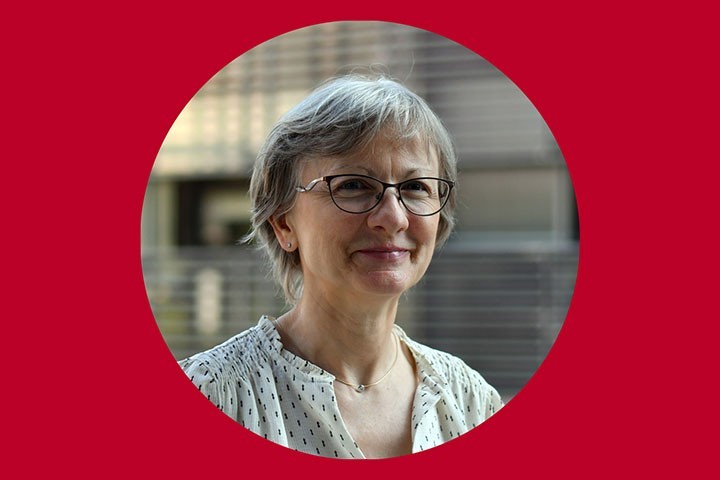
Interview: Sylvie San Segundo
The administrative staff are numerous: about fifty persons within the research units of Bordeaux Neurocampus. Their missions? Financial management, IT, event management, secretarial work… all essential jobs but little is said about them. We give the floor to one of them, Sylvie San Segundo, who works at the Neurocentre Magendie.
What are your missions at the Neurocentre Magendie?
In this research unit, the missions of research support are dissociated by poles: there is a logistics pole, a budget pole, a mission pole, a human resources pole, and an IT support pole. The logistics pole where I work carries out all the purchasing actions within the Neurocentre. My missions are therefore very varied, and include in particular expenses that can be related to scientific publications. These days, there are more than usually because the researchers have been able to devote time to it, with the confinement.
At first, the research environment was unfamiliar to me: I obtained a literary bachelor’s degree, and for 20 years I worked in a travel agency. After a professional reconversion in the small business assistance, I assisted my husband in his company, and later I applied to the Neurocentre Magendie. I had already heard of INSERM, which is the supervisory body of our unit and whose regional delegation shares the same building.
Over the years, I took on responsibilities. At the beginning there were two of us, and today there are almost three of us; I have taken over the logistics pole, dividing up the tasks, being in charge of public procurement as well as animation and communication for purchasing. Our role in supporting research is to help scientists with the administrative aspect so that they can devote themselves to fundamental research more serenely. I also have a mission as a prevention assistant: risks are often associated with laboratories, whereas there are also psychosocial risks and musculoskeletal disorders which also affect administrative staff, and for which there are prevention missions.
Finally, I also have a role in the Neurocentre’s network of prevention assistants to coordinate all curative and preventive maintenance actions related to equipment in the laboratories. This is an important range. I draw up the contracts and negotiate them within the framework of competitive bidding in order to find the best suppliers. I am therefore aware of the purely scientific aspect and the needs of the platforms and research teams.
So your day-to-day work is varied!
Yes, it does. But there are also a lot of recurring tasks: every morning I check my e-mails, the orders that come in, because we have eleven research teams, five technical platforms, so there are a lot of needs, but every day is different. When we are not teleworking, the doors of our office are always open, we exchange with the researchers, technicians, live agents.
Besides diversity, what do you particularly like about your work?
What I like most is the teamwork with my colleagues and the interaction with the other poles. This is fundamental for me. With my twenty years’ experience in a travel agency, I was particularly interested in the relationship with the public, being able to interact, providing a service, and I found it here. I have the same relationship with the agents as I had with my clients in the past. I have to be able to listen to them, relieve them of all administrative constraints, accompany them.
I also like to coordinate or participate in group actions. The network of prevention assistants is the ideal terrain for this. With the first phase of deconfinement that we went through, the network was very effective; we set up working groups to divide up the tasks among ourselves, at the site level. The network has found its full meaning in this context. That’s also what I like about my work: being able to work with other people, in good understanding, and thus in this case to participate in the advancement of research. At the beginning of the deconfinement, when I went to the office once a week, the site was empty, so I was sad (laughs). Since we have returned to face-to-face work, even partially, and by making sure that the barrier gestures are respected, it’s nice to be able to talk to my colleagues, to have a little coffee from time to time: I missed that.
Last update 08/07/20
